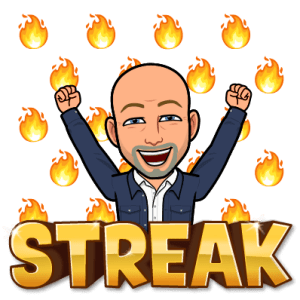 In the work I do today, I am frequently on zoom with or in person with school leaders. The most common challenge that school leaders seem to face today, as I see it, is not being intentional with their time. We all have goals and aspirations in our role, but often those get set aside as we deal with the urgent, the crisis of the moment, rather than working on high-leverage leadership actions. I tell leaders often, stop being a firefighter and start being a leader. Those were actually the words of my leadership coach back when I was a struggling school principal. It takes more than word, however, to make this leap.
In the work I do today, I am frequently on zoom with or in person with school leaders. The most common challenge that school leaders seem to face today, as I see it, is not being intentional with their time. We all have goals and aspirations in our role, but often those get set aside as we deal with the urgent, the crisis of the moment, rather than working on high-leverage leadership actions. I tell leaders often, stop being a firefighter and start being a leader. Those were actually the words of my leadership coach back when I was a struggling school principal. It takes more than word, however, to make this leap.
As a school leader, I was no stranger to endless tasks, urgent emails, and an overwhelming to-do list. I wanted to focus on the “big rocks” that truly moved our school forward, but my days were filled with putting out fires. I realized I needed a structure that would help me prioritize, delegate, and reflect on my work in a meaningful way. That’s where The School Leader’s Weekly Planner came in—a simple tool that helped me create a rhythm to focus on high-impact work. Here’s how it’s structured and why each part has been so valuable to me.
Setting Weekly Goals
 Each week, I use the planner to outline my top goals for the week. This is where I think big picture: What are the priorities that will actually move the needle for my school? Weekly goals give me a sense of direction and allow me to focus on outcomes rather than getting lost in the smaller tasks. By intentionally setting a few high-impact goals each week, I ensure that my time and energy are aligned with my school’s mission and vision.
Each week, I use the planner to outline my top goals for the week. This is where I think big picture: What are the priorities that will actually move the needle for my school? Weekly goals give me a sense of direction and allow me to focus on outcomes rather than getting lost in the smaller tasks. By intentionally setting a few high-impact goals each week, I ensure that my time and energy are aligned with my school’s mission and vision.
Setting weekly goals has given me clarity and a sense of purpose, even on those days when the unexpected takes over. I can look at my weekly goals and know that if I stay focused on those, I’ll be making progress in the right areas.
Daily Time Blocks
 Once I’ve defined my weekly goals, I block out time each day to work specifically on tasks that support them. This focus time is non-negotiable—I treat it like an appointment with myself and avoid interruptions. Having set blocks of time for priority work allows me to give my full attention to what matters most, instead of bouncing between tasks.
Once I’ve defined my weekly goals, I block out time each day to work specifically on tasks that support them. This focus time is non-negotiable—I treat it like an appointment with myself and avoid interruptions. Having set blocks of time for priority work allows me to give my full attention to what matters most, instead of bouncing between tasks.
Daily time blocks also help me recognize what can be delegated. Knowing that my schedule has dedicated focus time allows me to say “no” to some of the smaller tasks that don’t require my direct attention and pass them to others who can handle them.
Daily and Weekly Reflection
 Reflection is a cornerstone of this planner. At the end of each day, I take a few minutes to jot down what went well, what didn’t, and what I need to adjust for tomorrow. This daily reflection keeps me aligned with my weekly goals and helps me avoid repeating mistakes or getting sidetracked.
Reflection is a cornerstone of this planner. At the end of each day, I take a few minutes to jot down what went well, what didn’t, and what I need to adjust for tomorrow. This daily reflection keeps me aligned with my weekly goals and helps me avoid repeating mistakes or getting sidetracked.
Then, at the end of the week, I do a larger reflection. I look back at my goals, celebrate wins, and assess where I can improve. Weekly reflection has made a big difference in helping me see what’s working and what isn’t, so I can approach each week with a fresh, focused mindset.
Ready to take back control? Download The School Leader’s Weekly Planner and start using it to align your time with your goals, delegate more effectively, and gain clarity. This is a totally free resource and it is a game changer! It’s time to reclaim your focus and lead with intention.
Take Control of Your Leadership
 If today’s post resonated with you and you’re ready to take your leadership to the next level, my digital course might be just the thing you are needing. We will be launching the course soon, and I cannot wait to bring even more support, value, and solutions to you in your leadership world.
If today’s post resonated with you and you’re ready to take your leadership to the next level, my digital course might be just the thing you are needing. We will be launching the course soon, and I cannot wait to bring even more support, value, and solutions to you in your leadership world.
Sign up for my VIP mailing list at roadtoawesome.net to be first in line for special pricing, behind-the-scenes content, and exclusive offers only available to email subscribers. Don’t let difficult situations steal your focus—join today and start leading with intention!
Tune in this Sunday to “Leaning into Leadership” where I welcome middle school principal Bentli Lewis in for a conversation about intentional improvement of academic performance and school culture.

Be First to Comment